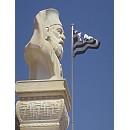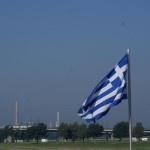Global crisis hits the Balkan nations hard. Greeks together with Turkey and Bulgaria hope to survive through unique tourism campaigns – extensive promotion, new attractions, and free drinks.
The global economic crisis has hit the majority of industries very hard, including the tourism industry. People of all kinds now tend to make shorter trips abroad, spending less time in hotels, do not travel at all in order to save cash or are generally spending less whilst abroad.
For countries in the so-called euro zone, the expensive euro does not help. The biggest problems are caused by the countries that so heavily rely upon tourism for their well-being. Greece is one of the best examples of this, along with neighbouring Turkey and Bulgaria.
Tourism in Greece accounts for one fifth of the GDP and is worth an annual total of 240 billion euro. It would be an understatement to suggest that tourism is merely important to Greece. However, in light of the dreaded credit crunch, Greece expects a 10 per cent drop in tourism this year, with hotel occupancy decreasing by as much as 50 per cent. This has even led to the suggestion that the majority of Greek hotels would be shut over the Catholic Easter. The figures speak for themselves: reservations are down 70 per cent on 2008 and five-star hotels in Greece are 28 per cent less full than 12 months ago. The situation is similarly horrendous in Bulgaria and Turkey.
So, what is being done to stop the trend? Bulgarian hotel operators have reputedly started offering unlimited alcohol for free to tourists if they spend enough time in the country (they need to book at least a week-long vacation). Turkey plans to promote itself in as many as 80 countries. Greece is taking a more cultured approach in promoting its unique brand of tourism and e.g. in June it will open the long awaited Acropolis Museum. Indeed, Southern Europe does not always offer such a mixture of ancient civilisation, ancient monuments and untouched coastline without too much development. The Greeks have also increased their travel budget by 50 per cent and offered tax cuts to travel companies.
Photo: tourism-review.com






